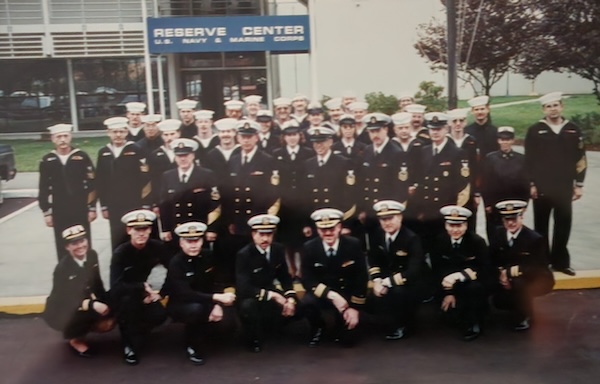“I’ve always been interested in puzzles and mysteries and being a detective of sorts to figure out what happened or how could something be done."
In 1974, the United States was still engaged in the Vietnam War and Charlotte Rooks wanted to do something to serve her country. When she joined the US Naval Reserves in September of that year, she also saw it as a long-term, part-time job. She joined a special “4 x10” program. The program required four to ten months of active service followed by one weekend per month and two weeks per year in the reserves. The part-time job did indeed prove to be a long-term commitment, and Rooks remained in the Naval Reserves for the next 24 years.
After finishing boot camp in Orlando, FL Rooks was given the opportunity to enter the Navy’s Cryptologic Training School based on her test scores. While it was unique opportunity to train for a highly specialized job, Rooks said that the training already aligned with her personal interests.
“I’ve always been interested in puzzles and mysteries and being a detective of sorts to figure out what happened or how could something be done,” Rooks said.
The first part of the training was designed to acclimate students to living and working in the top-secret communications world of the Armed Forces. The second half was practical application and work experience that prepared students to take on the demands and responsibilities of a real-world military job.
After finishing her training, Rooks specialized in operating machines that sent and received encrypted messages.
“My job was to maintain a top-secret clearance while learning all the computer skills possible,” Rooks explained. “In 1975, the machines that were used were a telex machine and a R390. Both were machines that were intended to send encrypted messages.”
Among her responsibilities was learning to read and decipher those communications from paper tape that was fed through the machines.
“The configuration of the holes indicated letters which created words for messages that were sent to and from vessels or Navy bases,” she said.
While still in the U.S. Naval Reserves, Rooks moved to Corvallis in 1992 and took a position with a software company as an accounts receivable manager. After the company was sold in the mid-2000s, Rooks applied to OSU, which led to her current position as manager for analytical operations with the Controllers Unit.
Rooks said that her 24 year career in the Navy taught her discipline and resiliency and to understand the importance of respecting the chain of command. She sees those values reflected in others who have served as well.
“You learn about Standard Operating Procedures (SOP) and learn how important they are to follow so you keep your shipmates and yourself safe,” she said.
Rooks said that training to understand and respect protocols translates to success in other jobs . She said she observed good and bad leadership approaches in the military and follows the example of those who lead successfully.
Rooks’s assigned mission to protect top-secret communications taught her the importance of respecting confidentiality and protecting sensitive information – a lesson she carries forward into her work today. And with that, she offers some advice that remains evergreen – particularly in today’s media landscape of viral stories and rumors that spread quickly.
“The unit that I drilled with learned that ‘loose lips sink ships,’” she said. “If you don’t want to hear about it in the morning news, don’t talk about it today.”
Charlotte Rooks is first row, far left
